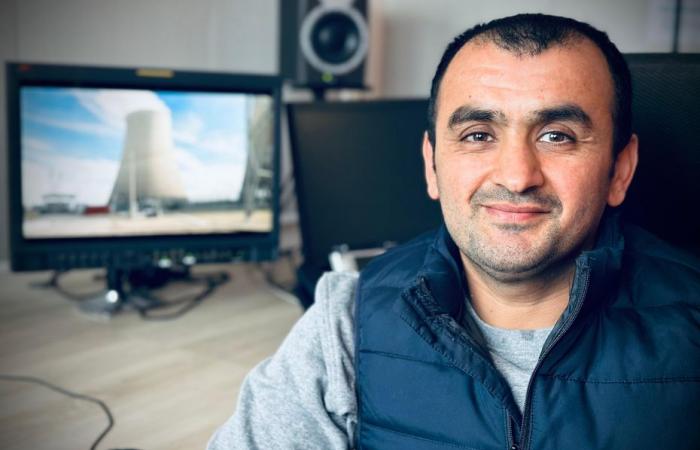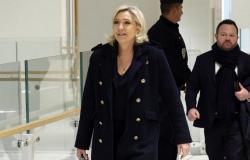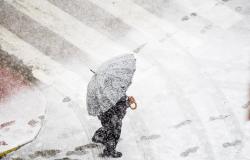
The visit of the Minister Delegate in charge of Energy to the nuclear power plant of Nogent-sur-Seine (Aube) was to be followed by two journalists from France 3 Champagne-Ardenne on Friday November 8. But access to one of them, an Afghan national, was refused.
The essentials of the day: our exclusive selection
Every day, our editorial team reserves the best regional news for you. A selection just for you, to stay in touch with your regions.
France Télévisions uses your email address to send you the newsletter “The essentials of the day: our exclusive selection”. You can unsubscribe at any time via the link at the bottom of this newsletter. Our privacy policy
Noorulah Shirzada, journalist and image reporter, regularly collaborates with France 3 Champagne-Ardenne. On November 8, he had to cover with a fellow journalist and editor the visit of the Minister Delegate in charge of Energy Olga Givernet to the nuclear power plant of Nogent-sur-Seine, in Aube. But he was refused access to the place.
Our colleague is of Afghan nationality. A journalist since 2010, he first collaborated with local Afghan media, before joining Agence France Presse, where he worked as a photographer then videographer in the office in Kabul, the country's capital.
In August 2021, the Taliban regained power in the country. On August 18, Noorulah Shirzada left Afghanistan with her wife and children on a plane chartered by the French embassy. Since then, he has settled in Reims and was able to obtain a ten-year residence permit. He also holds a French press card.
Ahead of the minister's visit to Nogent-sur-Seine, our editorial staff was asked to provide the identity documents of the journalists who were to cover the visit. A usual procedure which does not normally present any difficulty. The deadline for submitting these documents was November 7, the day before the visit, at 7 p.m.
In the afternoon, the identity documents (identity card or residence permit and press card) of the two journalists planned for the visit are sent to the Aube prefecture, which manages accreditation requests. . Everything is sent in the same message. A copy of Noorulah Shirzada's passport is then requested. The document is sent before the deadline announced by the prefecture.
Despite this, it will be impossible for our colleague to be able to cover the ministerial trip as planned. He is refused access to the Nogent-sur-Seine nuclear power plant. On the other hand, that of his colleague, who has a French national identity card, will be validated.
The Force Ouvrière union within France Télévisions warned of this situation on the very day of the visit, in a press release which notably recalled the excitement that the measure caused within the editorial staff of France 3 Champagne-Ardenne. The Reporters Sans Frontières association, on the same day, requested explanations from the Aube prefecture in a message on “likely attack on freedom of the press”.
The editor-in-chief of France 3 Champagne-Ardenne questioned the Aube prefecture and EDF in order to obtain explanations on the reasons which led to this situation. The prefecture assures that this is in no way a decision for which it is responsible. She “would be motivated by an unfavorable opinion given by the Department of the Senior Defense and Security Official”, depending on the prefecture.
The Nogent-sur-Seine nuclear power plant (Aube), November 8, 2024.
•
© BERTRAND GUAY / AFP
As we can read in a presentation brochure from the Ministry of Ecological Transition published in April 2021, the Senior Defense and Security Official “defines and implements defense and national security policies in the nuclear field”. Nuclear safety control gives rise, according to this document, to 275,000 administrative investigations each year to allow access to installations.
EDF for its part indicates that Noorulah Shirzada's nationality had no influence in the decision to refuse her access. The refusal is, according to the company, linked to “the late transmission of the passport does not allow the request for access to be processed in accordance with the procedure.”
Our colleague, Noorulah Shirzada, was very affected by this refusal. “That day, I was completely stuck. But during the day, I received a lot of messages from colleagues who expressed their support. Frankly, it gave me the energy to get back up,” he confided a week after the incident.
It was really painful for me. I wondered who I was today.
Noorullah Shirzada, journalist
He even comes to question the value of his residence permit, issued by the French Republic after a careful examination of his situation. “I sent all the documents, and despite all that I was not authorized to enter the center. So that means that I cannot count on the papers that I have in France,” he says. -he, fatalistic.
He fled the Taliban regime, but part of his family is still in Afghanistan. “I am an Afghan journalist, but on the other hand, I am a human. I live in France, with a lot of hope.” He hopes that such a situation will not arise.
At the end of an exchange on the facts, a week later, EDF proposed that our colleague return to the nuclear power plant, as a journalist.





